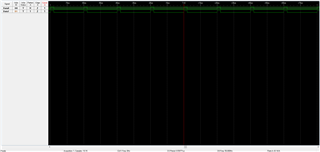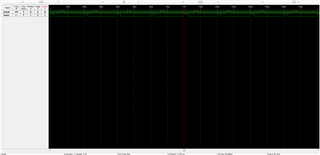Part Number: LAUNCHXL-F28379D
Other Parts Discussed in Thread: SYSCONFIG, C2000WARE
Hi,
I'm using SysConfig 1.14.0 and CCS 12.1.0.00007 to define a project for a launchxl-F28379D.
It mostly works well, but I noticed that phase shift between ePWM modules doesn't work where HRPWM is configured.
The regular phase shift settings works well, and after enabling HRPWM I'm getting ~3-4us phase shift regardless of the defined phase shift value.
how can I define it correcly?
thanks,
Oren






